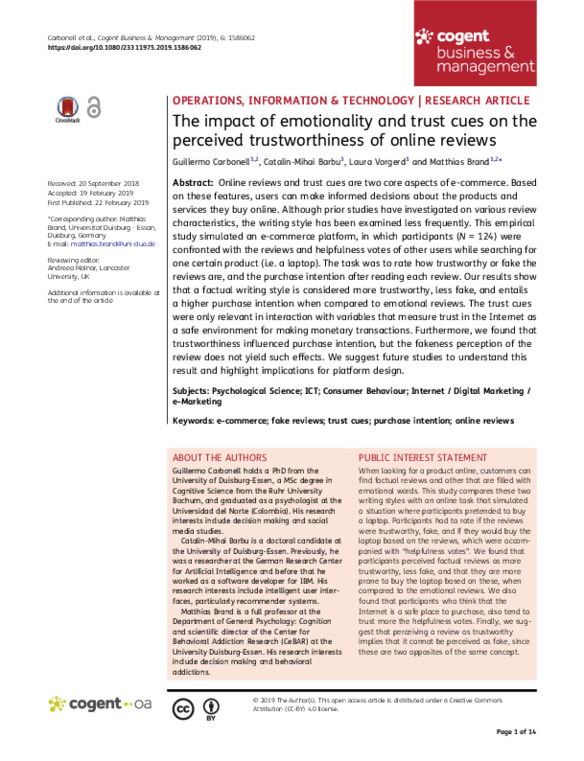The impact of emotionality and trust cues on the perceived trustworthiness of online reviews
Carbonell, G., Barbu, C.-M., Vorgerd, L., & Brand, M. (2019). Cogent Business and Management, 6(1), 1586062.
Abstract
Online reviews and trust cues are two core aspects of e-commerce. Based on these features, users can make informed decisions about the products and services they buy online. Although prior studies have investigated on various review characteristics, the writing style has been examined less frequently. This empirical study simulated an e-commerce platform, in which participants (N =?124) were confronted with the reviews and helpfulness votes of other users while searching for one certain product (i.e. a laptop). The task was to rate how trustworthy or fake the reviews are, and the purchase intention after reading each review. Our results show that a factual writing style is considered more trustworthy, less fake, and entails a higher purchase intention when compared to emotional reviews. The trust cues were only relevant in interaction with variables that measure trust in the Internet as a safe environment for making monetary transactions. Furthermore, we found that trustworthiness influenced purchase intention, but the fakeness perception of the review does not yield such effects. We suggest future studies to understand this result and highlight implications for platform design.







